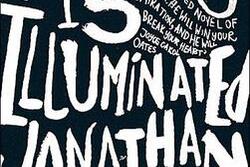The Exception's Antisemitism Is, Unfortunately, Not An Exception
The Exception (2016) is a film centered around a Jewish woman falling in love with a Nazi, and somehow, it goes downhill from there. It tells the fictional story of Mieke de Jong (Lily James), a Jewish woman who goes undercover for the Dutch Resistance as a maid in the exiled Kaiser Wilhelm II’s household. Her forbidden love interest is Stefan Brandt (Jai Courtney), a captain in the SS assigned to protect the Kaiser from the Dutch Resistance’s assassination plot. Unsurprisingly, none of this is executed tastefully. Between using atrocities as a way to create romantic drama and its rush to excuse antisemitism, The Exception is a movie that never should have left the writer's room.
Overall, Mieke and Brandt’s relationship is portrayed as a raunchy forbidden-lovers romance, with tearful confessions and risqué scenes, inviting the viewer to forget the context of their relationship. But the problematic dynamic between Mieke and Brandt should not be ignored: Mieke is a servant, a spy, and a Jew in hiding, and Brandt is a captain in Hitler’s military, one who could have her killed with a simple word. Accidentally, the film ensures that the problematic nature of their relationship cannot be ignored. Each time an intimate scene takes place between Mieke and Brandt, the next scene is in stark contrast, with Brandt firing a gun at an off-screen target, then panning to the damage he’s made. These scenes are included to show an angsty, more human side of Brandt, to garner sympathy for a man that would otherwise be considered a monster. But as a Jewish viewer, I felt that the scenes are almost jump scares, jarring turns that make it impossible to forget the violence Brandt has committed against Jews. Here, the movie introduces a tactic that characterizes the film as a whole: historical atrocities used as a tool for dramatic tension.
That tactic is also used on Kaiser Wilhelm II, the last kaiser of Germany. He’s portrayed as a somewhat backwards but otherwise harmless old man, a choice that ignores any accurate historical depictions in favor of redeeming an antisemite. In one of his earlier scenes, we see him feeding the ducks amidst quaint scenery, smiling idly in delight. When Mieke approaches, acting as the silly, naive young maid, the Kaiser openly jokes with her, weaving in an amusing metaphor about ducks. But this nonsensical scene was preceded by a shockingly antisemitic speech by the Kaiser just minutes before: “Freemasons. Bolsheviks. Jews. The unholy alliance that we have to face.” While the Kaiser’s antisemitic streak isn’t ignored, in under ten minutes, the viewer is hastily welcomed to forget it. The movie implores us to instead see the Kaiser as a sad, lonely old man who we should sympathize with. In reality, the Kaiser did hold those horrible sentiments about Jews, and worse. But by the end of the film, his lovable personality has won out, and Mieke helps the Kaiser escape danger—betraying her original mission for the Resistance. The writers behind The Exception made the deliberate choice to rewrite a man known to have called Hitler’s works “marvelous,” turning him into someone who deserves to be saved by a Jew. The characterization of the Kaiser furthers a troubling message: antisemitism is wrong, of course, but its proponents should be given sympathy and their actions forgotten.
Mieke has been subjugated by war and prejudice and lives her life in constant, agonizing fear of discovery. She is forced to stand silently as Nazis commit horrific actions against Jews. My biggest question is this: where is Mieke’s rage? What makes the offenses of The Exception so unforgiveable is the fact that Mieke is passive through it all. If she had raged, showed true anger with the entire situation—as any person would—and then found it in her heart to show forgiveness towards Brandt and the Kaiser, it would have been a different, though still questionable, story.
As it stands, Mieke comes across as never having truly cared about her mission in the first place. At one point, after Mieke confesses to Brandt that she is Jewish, he details an anti-Jewish massacre he witnessed firsthand. He then claims that such massacres don’t represent his comrades’ true motives. After a moment of temporary resistance, Mieke forgives him. It’s a genuinely sickening moment. The viewer is shown recreations of the Holocaust with full gore, then the viewer is called to immediately side with Brandt. The viewer is not allowed to be angry with Brandt. After all, how could he be a true monster when he knows it’s wrong to kill Jews? There are worse Nazis, so we shouldn’t hold Brandt to such a high standard. He earns Mieke’s forgiveness, so he deserves ours.
Perhaps the only spot of redemption in The Exception is Lily James’ performance. As Mieke, she portrays the anxiety of undercover life—as well the subtle changes in emotion upon hearing vile rhetoric—with incredible authenticity. With such authenticity, in fact, that it’s almost easy to forget that James herself is not Jewish. Yet it’s impossible for me to look past this casting, since it’s yet another addition to the long, exhausting history of non-Jews playing Jewish characters. It’s tiring to see a Jewish story told by someone putting on a caricature, then pulling their Jewish persona right back off as soon as the cameras stop. So to see the tragedy of anti-Jewish persecution turned into a cheap forbidden love story, then watch a non-Jewish woman pretend to be a Jew who simpers over a Nazi? It’s one final insult to an already long list of injuries.
What I find most insidious about The Exception is how easy it was for the creators to make sympathetic characters out of antisemites. At the end of the movie, Mieke has helped the Kaiser escape, fallen in love with a Nazi, and doesn’t regret any of it. The message is clear: if Mieke can forgive and love these antisemites, why can’t everyone else? The movie is able to get away with this because The Exception raises the standard for calling someone an antisemite. Brandt is a Nazi, sure, but he knows killing Jews is bad. Kaiser Wilhelm II applauds Hitler, but he is a silly, likable old man. Neither of them really hates Jews, so how could we associate them with the real bad guys?
This kind of messaging is incredibly dangerous. Antisemitic incidents have reached an all-time high in America, but most people wouldn’t believe that they are part of the problem. Sure, they might make a Holocaust joke or two, maybe they’ve perpetuated stereotypes, but they’d never assault a Jewish person, so we can’t call them antisemites. If anti-Jewish hatred is ever going to be diminished, we have to stop excusing people and start calling those “small” acts what they are: bigotry that creates a culture in which violence against Jews is prevalent. We have to start treating calling out antisemitism like the rule, not the exception.
This piece was written as part of JWA’s Rising Voices Fellowship.








Thank you finally someone who sees how incredibly disgusting & disrespectful that movie was it was pure sexualisation and down playing of the horrors of the holocaust
Get over it. You are making a wrong reading of this movie. Honestly. It has become a sport to make art collateral damage in people's individual wars to advance their political views. It is great you have them, but not everything out there proves your point or confirmed you are right. Analyze, do not proselytize....gets boring after a while.
What was love ever been in this world?